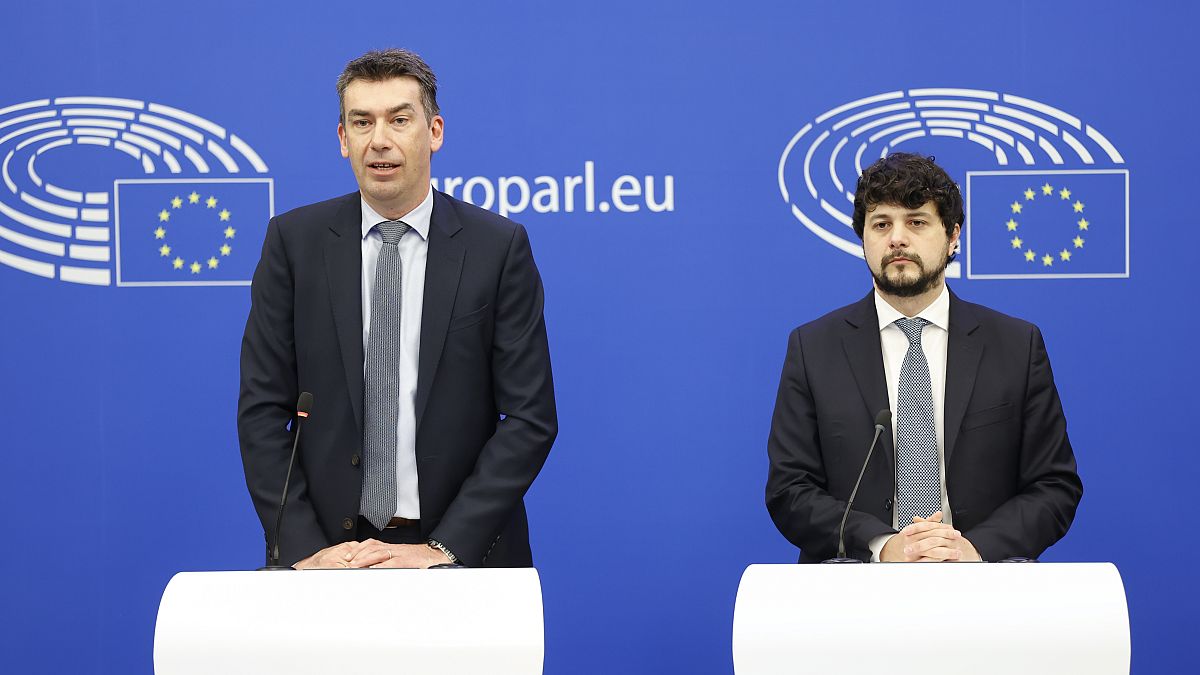Recruitment for technical and policy roles at the office already begun last month.
The European Commission will only start the selection procedure to find a head of the AI Office when the AI Act is fully approved, which is likely to happen in May.
“Until the AI Act is fully formally adopted, the policy units A1 and A2 in DG CONNECT, with their current hierarchies, are carrying out the tasks of the AI Office,” a commission spokesperson told Euronews.
Last month (21 February) the commission set up the office with operations starting in the coming months. It already began its recruitment process for policy and technical jobs with a deadline for applications on 27 March. The start of employment could tentatively be expected from this autumn, according to the job ad.
The office, an internal department within the commission, will supervise the rules for general-purpose AI systems and function as a central coordination body for AI policy at EU level, coordinating with other commission departments, EU agencies, companies and the 27 EU Member States.
The EU executive said that “commission procedures will apply for the selection of management positions within the AI Office.”
Lead-lawmaker on the file Dragos Tudorache (Romania/Renew) and Lucilla Sioli, Director for AI and Digital Industry within the commission, are two names circulating as contenders for the position.
The AI Act was approved in Parliament this month (13 March) with an overwhelming majority of 523 votes in favour, 46 against and 49 abstentions, but needs a formal nod from the 27 EU governments, scheduled for May.
The law divides AI systems into four main categories according to the potential risk they pose to society. The systems that are considered high risk will be subject to stringent rules that will apply before they enter the EU market.
In November, bans on prohibited practises specified in the AI Act will apply. The general-purpose AI rules will apply one year after entry into force, May 2025, and the obligations for high-risk systems in three years. They will be under the oversight of national authorities, supported by the AI office. Member states have 12 months to set up their national regulators.



